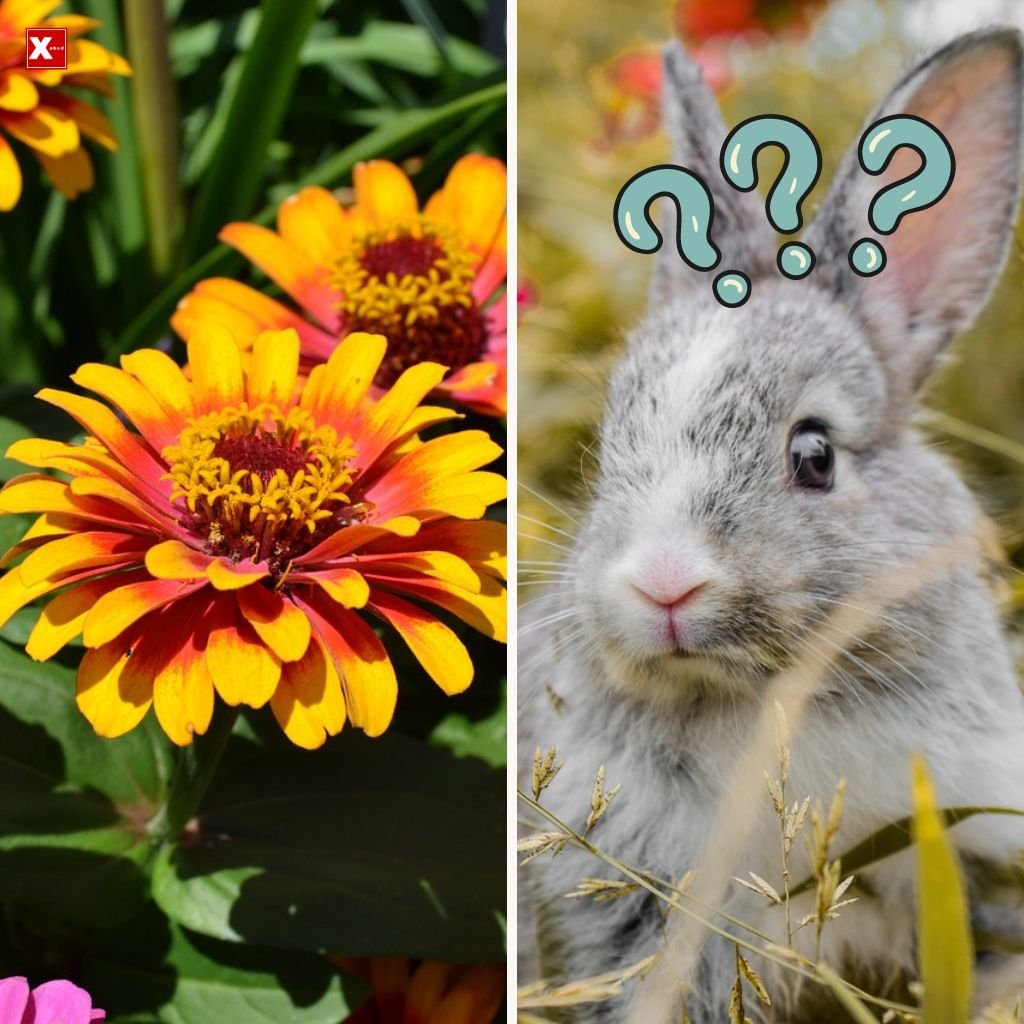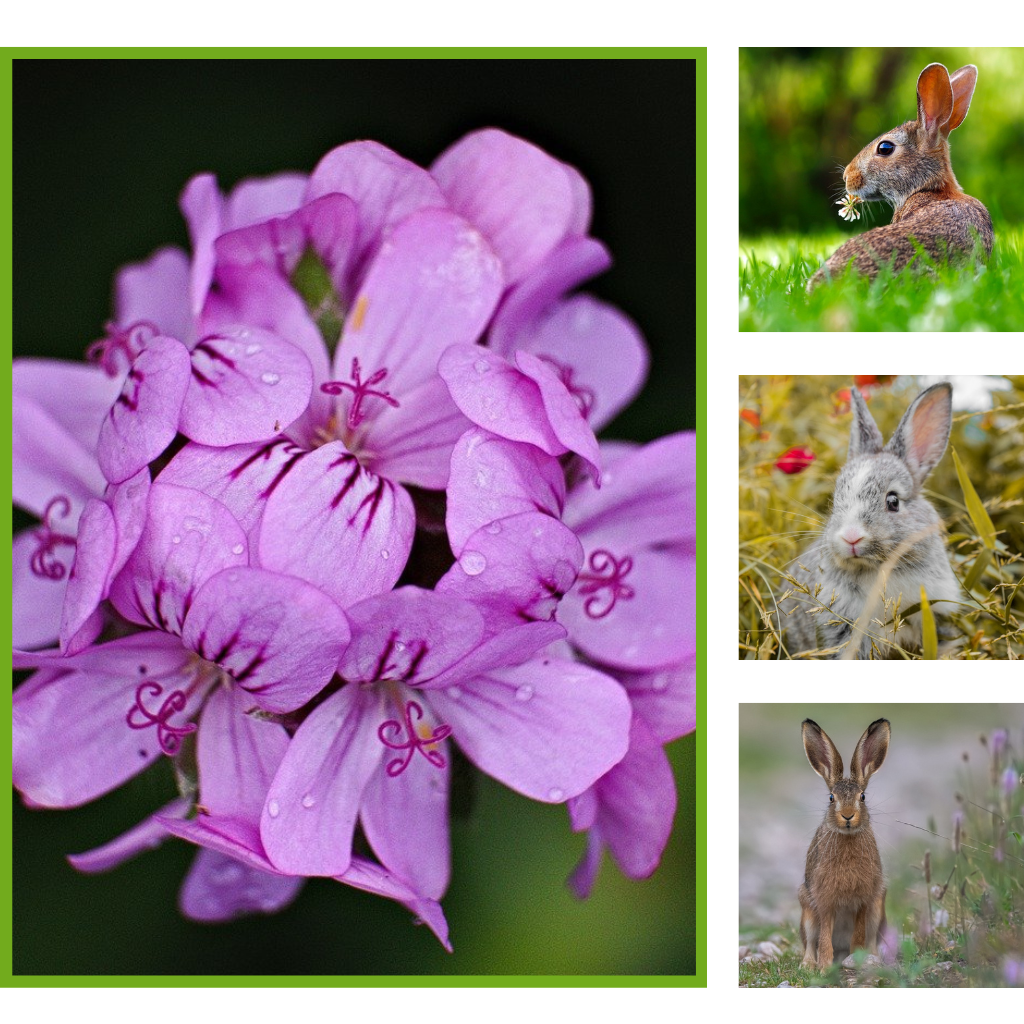Rabbits generally don't like to eat Zinnias. Let’s discuss it in detail below.
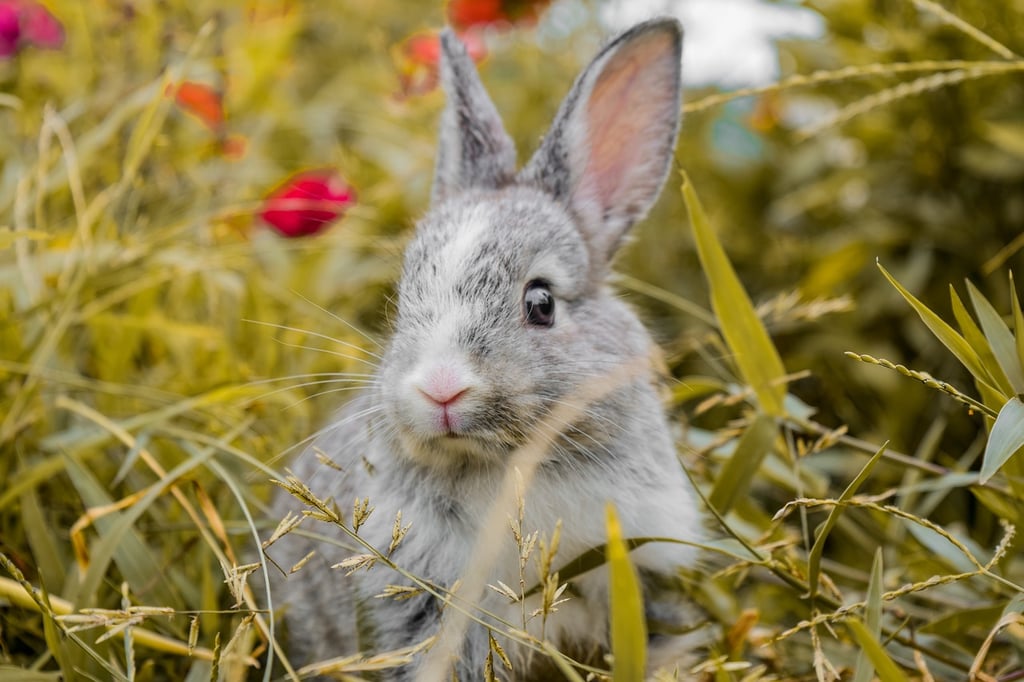
The Rabbit Diet: An Overview
When it comes to the diet of rabbits, it is essential to understand that these furry creatures are herbivores. They primarily feed on various types of vegetation, including grass, weeds, and even certain flowers. This makes understanding their eating habits crucial, especially if you're a gardener who loves to cultivate a variety of plants and flowers. So, let's dive into the topic of rabbit diets and explore whether zinnias find a place in their menu.
Rabbits have a unique digestive system that allows them to efficiently extract nutrients from plant matter. Their teeth are specifically adapted for grinding down fibrous vegetation, and they have a large cecum, a specialized chamber in their digestive tract, where fermentation of plant material takes place. This system enables them to extract maximum nourishment from the food they consume.
When it comes to their natural habitat, rabbits typically feed on a wide range of grasses, leaves, shoots, and even bark. They are opportunistic grazers, meaning they will eat whatever is available to them. This adaptability helps them survive in various environments, from open fields to forest edges.
However, not all plants are equally attractive to rabbits. While they have a diverse diet, there are certain plants that rabbits tend to avoid due to their taste, texture, or toxicity. This brings us to the question of whether zinnias, the vibrant and eye-catching flowers often found in gardens, fall into the category of plants rabbits munch on.
- Rabbit-Friendly Plants: Rabbits have a preference for tender, young plants and shoots. They often target easily accessible vegetation that is low to the ground. Grasses, clover, and dandelions are some of their preferred food sources.
- Avoiding Bitterness: Generally, rabbits are not fond of bitter-tasting plants or those with tough, fibrous leaves. This preference could make them less likely to nibble on zinnias, as these flowers tend to have a distinct, slightly bitter taste.
- Zinnias and Rabbit Diet: While there is no definitive answer, many gardeners report that rabbits do not frequently target their zinnias. This could be due to zinnias' texture, taste, or the fact that they contain certain compounds that rabbits find unappealing.
- Plant Toxicity: Another factor that might contribute to rabbits' avoidance of zinnias is their potential toxicity. Certain flowers contain compounds that are harmful to rabbits when ingested. Zinnias, fortunately, are not among the flowers commonly known for causing harm to rabbits.
It is important to note that rabbits can be highly adaptive and individual preferences may vary. If rabbits in your area have limited food options, they might explore any available vegetation, including zinnias, as a last resort. However, providing alternative food sources, such as rabbit-friendly plants or a designated feeding area, can help deter them from feasting on your beloved zinnias.
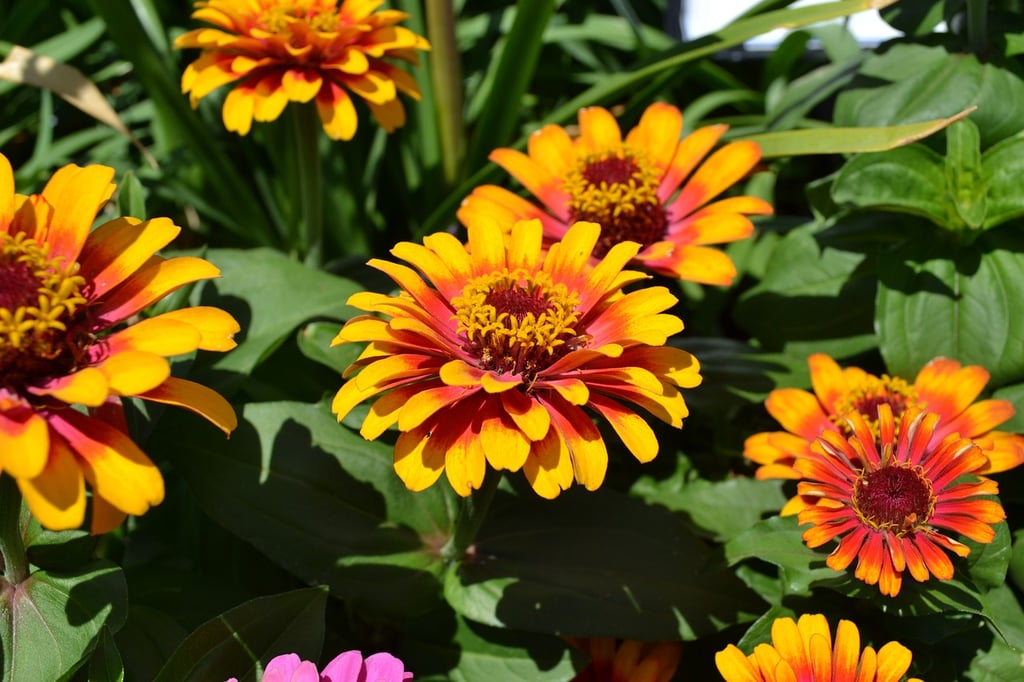
Are Zinnias Part of the Rabbit's Palate?
Rabbits, being herbivores, primarily feed on a variety of plants and vegetation. Their diet consists of grass, weeds, leaves, flowers, and vegetables. While rabbits have a preference for tender greens, they are known to sample a range of plant materials within their reach. However, zinnias are not typically at the top of their menu.
Despite rabbits' general inclination to consume various plants, zinnias are not among their favorite choices. Zinnias belong to the Asteraceae family and possess a slightly bitter taste that is less appealing to rabbits. The presence of certain compounds within zinnias may deter rabbits from indulging in these flowers. However, it's important to note that hungry rabbits may still resort to nibbling on zinnias if there is a scarcity of more favorable food sources.
Several factors influence a rabbit's preference for zinnias. The availability of other food sources plays a significant role in determining whether rabbits will resort to eating zinnias. If a rabbit's usual diet options are limited, it may be more inclined to sample zinnias, albeit reluctantly. Additionally, factors such as season, the presence of alternative food options, and the rabbit's individual preferences can also influence their grazing habits.
If you're an avid gardener and wish to protect your zinnias from rabbit feasting, there are precautions you can take. Creating a rabbit-proof barrier around your garden or employing repellents can help to deter these creatures. Additionally, planting rabbit-resistant flowers alongside your zinnias can divert their attention away from the delicate blooms. Flowers such as marigolds, snapdragons, and salvia are known to be less attractive to rabbits and can serve as a protective shield for your zinnia plants.
Observing rabbits' feeding behaviors can also provide valuable insights into their dietary preferences. Take note of which plants they tend to avoid or frequently consume. This information can guide your gardening choices and help you select plants that are less likely to be ravaged by rabbits.
In conclusion, while zinnias may not be rabbits' first choice for a tasty meal, these flowers can still fall victim to their nibbling if other food options are limited. To protect your zinnias, it's essential to implement measures such as creating barriers and introducing rabbit-resistant flowers to your garden. By understanding these adorable creatures' eating habits and taking steps to coexist peacefully, you can enjoy the vibrant beauty of zinnias without sacrificing them to rabbit feasting.
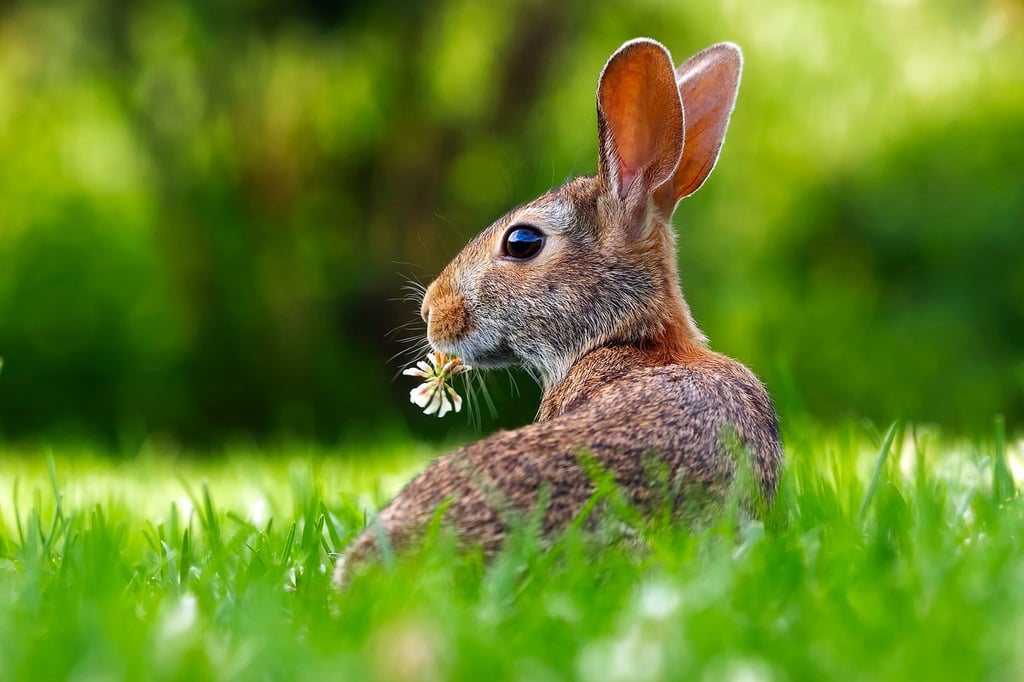
The Factors at Play
The factors that influence a rabbit's inclination to consume zinnias can vary depending on multiple factors. While not all rabbits have the same dietary preferences, there are a few common factors at play when it comes to their selective eating habits and the consumption of zinnias.
Scent and Taste: Rabbits have a keen sense of smell and taste, which helps them determine whether a particular plant is edible or not. Zinnias, with their distinctive fragrance and bitter taste, may not be as appealing to rabbits as other plants that have a milder or more appetizing scent.
Availability of Food: Rabbits are opportunistic feeders, meaning they will consume whatever food is readily available to them. If a rabbit's natural food sources, such as grass or leafy greens, are abundant, they are less likely to venture towards zinnias. However, if the rabbit's usual food sources are scarce, they may resort to nibbling on zinnias out of necessity.
Competition for Resources: In areas where food sources are limited or overcrowded with rabbits, there may be intense competition for available resources. In such scenarios, rabbits may be driven to try different types of plants, including zinnias, due to the scarcity of their preferred options.
Plant Characteristics: The physical characteristics of plants, such as their texture and appearance, can also influence a rabbit's feeding habits. Zinnias have thin, delicate stems and leaves, which may make them less appealing to rabbits who prefer plants with thicker, juicier foliage. Additionally, the bright and vibrant colors of zinnias may signal to rabbits that the plant is potentially toxic or unpalatable.
- Rabbits' keen sense of smell and taste influence their feeding choices.
- The availability of their natural food sources can deter them from consuming zinnias.
- Competition for limited food resources can push rabbits to explore different plants, including zinnias.
- The physical characteristics, such as thin stems and vibrant colors, may deter rabbits from eating zinnias.
Understanding these factors can help gardeners and rabbit enthusiasts make informed decisions when it comes to cultivating zinnias and protecting them from rabbit munching. By taking these factors into account, you can create a garden environment that is less enticing to rabbits while still enjoying the beauty of these vibrant flowers.
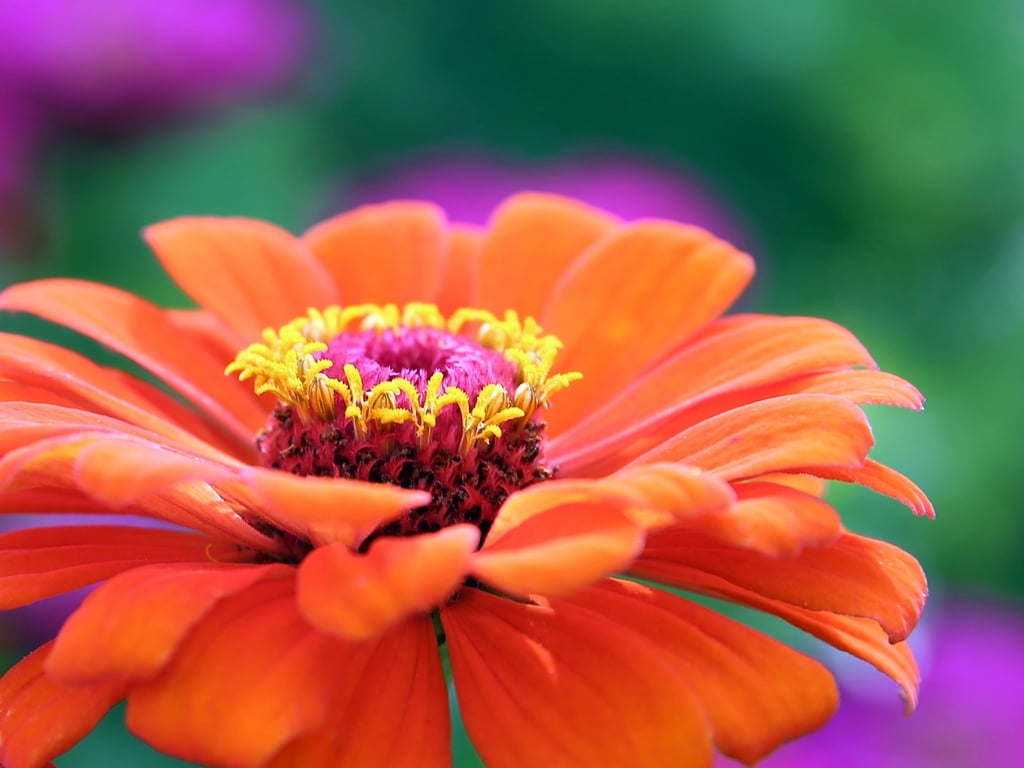
Protecting Your Zinnias from Rabbit Feasting
Protecting your zinnias from rabbit feasting is essential if you want to maintain the beauty and vibrancy of your garden. While rabbits may not be particularly fond of zinnias, hungry bunnies may still take a nibble if no other suitable food sources are available. Therefore, it is crucial to implement certain measures to deter these adorable yet voracious creatures from munching on your precious zinnias.
Here are some effective strategies to safeguard your zinnias from rabbit feasting:
- Fencing: Install a rabbit-proof fence around your zinnia bed or garden area. Opt for a fence made from chicken wire or hardware cloth with small openings that rabbits cannot squeeze through. Make sure the fence is at least 2 feet high and buried several inches into the ground to prevent rabbits from digging underneath.
- Repellents: Utilize natural or commercial rabbit repellents to deter the furry culprits from getting near your zinnias. Natural repellents like garlic, chili powder, or predator urine can be sprinkled around the zinnia plants. Commercial repellents containing chemicals like thiram or capsaicin can also be effective.
- Scare Tactics: Set up scare devices near your zinnia bed, such as fake predators, wind chimes, or motion-activated sprinklers. These visual and auditory deterrents can startle rabbits and discourage them from approaching your zinnias.
- Companion Planting: Interplant your zinnias with rabbit-resistant flowers, herbs, or vegetables. Plants like marigolds, lavender, sage, and onions are known to repel rabbits due to their strong odor or unpalatable tastes.
- Netting: Use garden netting or mesh covers to physically protect your zinnias. Wrap the netting around the plants or create a protective cage to keep rabbits at bay. Ensure the netting is securely anchored to the ground to prevent rabbits from squeezing underneath.
- Regular Maintenance: Keep your garden tidy by removing tall grass, weeds, and fallen fruits or vegetables that may attract rabbits. By eliminating potential food sources, you can discourage these herbivores from venturing into your zinnia paradise.
By employing one or a combination of these protective measures, you can significantly reduce the chances of rabbit feasting on your zinnias. Remember to regularly inspect and maintain the deterrents, as rabbits are clever and persistent creatures. Stay vigilant and enjoy the beauty of your zinnia blooms without worrying about furry intruders.
Alternative Rabbit-Resistant Flowers for Your Garden
When it comes to maintaining a beautiful garden, it's essential to consider the potential impact of rabbits on your plants. While rabbits may not have a particular fondness for zinnias, it's always wise to have alternatives in mind. By incorporating rabbit-resistant flowers into your garden, you can ensure that your blooms remain intact and your garden thrives.
Here are a few alternatives to zinnias that rabbits tend to steer clear of:
- Tulips: These vibrant and elegant flowers are not only a visual delight but also a rabbit deterrent. Their strong scent and taste make them unattractive to rabbits, keeping your garden safe from their nibbling.
- Daffodils: With their bright yellow or white petals, daffodils not only add beauty but also deter rabbits. The toxic compounds found in daffodils make them an unappealing option for rabbits to munch on.
- Marigolds: These stunning and colorful flowers are a popular choice for gardens. Fortunately, rabbits tend to avoid marigolds due to their pungent aroma, making them a great rabbit-resistant option.
- Lavender: Known for its calming scent and delicate purple blooms, lavender is also an excellent choice to ward off rabbits. The strong fragrance is a natural deterrent for these curious creatures.
- Coneflowers: These striking flowers, also known as Echinacea, are not only visually appealing but also rabbit-resistant. Their prickly texture and bitter taste make rabbits think twice before munching on them.
- Salvia: With its vibrant and tall flower spikes, salvia not only attracts pollinators but also repels rabbits. The strong scent and taste make salvia an unappetizing option for these garden visitors.
By including these rabbit-resistant flowers in your garden, you can create a beautiful and thriving space without worrying about rabbits feasting on your blooms. Remember to vary the types of flowers you plant to add visual interest and provide a diverse habitat for beneficial insects.
Additionally, incorporating natural repellents such as garlic, onion, or vinegar sprays can further discourage rabbits from approaching your garden. Regularly monitoring your plants and promptly addressing any rabbit activity can also help keep them at bay.
With these alternatives and protective measures in place, you can enjoy a garden filled with flowers that rabbits are less likely to devour. By embracing a rabbit-resistant garden, you can create a harmonious environment where both your blooms and these charming creatures can coexist.
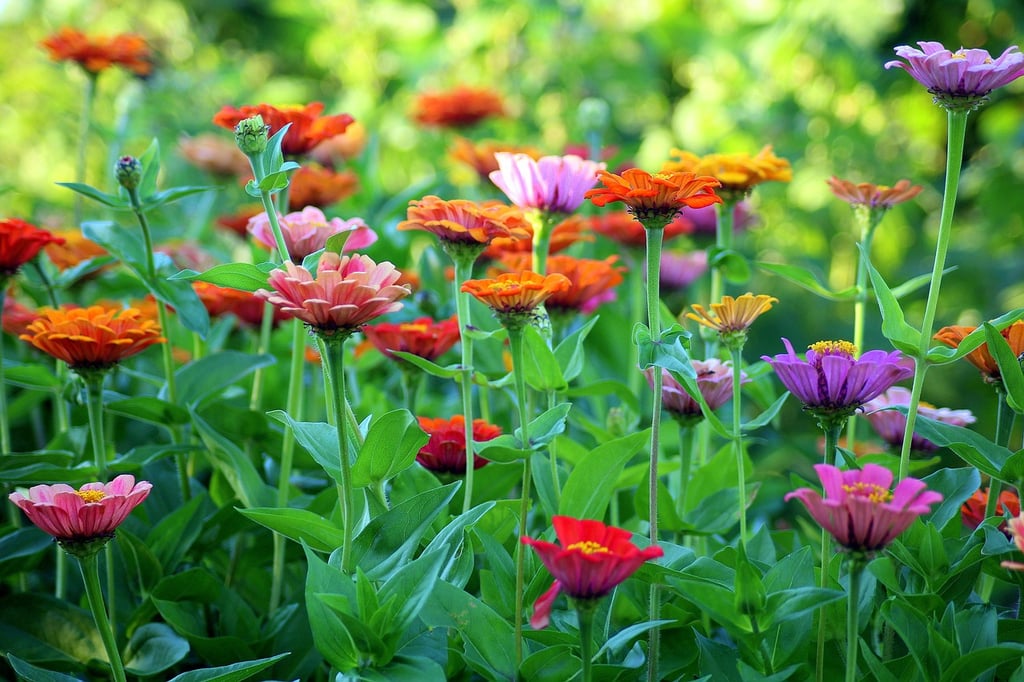
Observing Rabbits' Feeding Behaviors
Observing the feeding behaviors of rabbits can provide valuable insights into their dietary preferences and help determine whether zinnias are on their menu. By watching these adorable creatures in action, you can gain a better understanding of their eating habits and make informed decisions about protecting your zinnias.
When observing rabbits' feeding behaviors, it is important to note that they are primarily herbivores, which means their diet consists mainly of plants. Their digestive system is specially adapted for breaking down fibrous plant material, making them agile foragers in search of tasty greens.
One common behavior you may notice is browsing, where rabbits selectively graze on different plants. They tend to nibble on the plants they find most palatable, and their preferences can vary depending on the specific species of rabbit. While some rabbits may have a fondness for leafy greens, others may exhibit a preference for grasses or even flowers.
When it comes to zinnias, rabbits typically show less interest compared to other plants. This is because zinnias are not among their preferred food sources. However, hungry rabbits may still resort to nibbling on zinnias if alternate food options are scarce. Understanding this behavior can help you gauge the level of risk to your zinnias and take necessary precautions.
One aspect to consider when observing rabbits' feeding habits is their feeding time. Rabbits are crepuscular animals, meaning they are most active during dawn and dusk. During these times, you are more likely to witness their feeding behaviors. By observing them closely during these periods, you can gain valuable insights into how they interact with plants in your garden.
If you notice rabbits frequently visiting your garden or areas where zinnias are planted, it may be beneficial to create a rabbit-friendly space. This can involve setting up a designated feeding area with rabbit-friendly plants, such as clover or dandelions, to divert their attention away from your cherished zinnias. By providing an alternate food source, you can help protect your zinnias from being devoured and encourage rabbits to dine elsewhere.
- Observe rabbits during dawn and dusk, as they are more active during these times.
- Watch for selective grazing behaviors, where rabbits choose plants they find most palatable.
- While zinnias are not a preferred food source, hungry rabbits may still nibble on them if other options are scarce.
- Consider creating a rabbit-friendly space with alternative food sources to divert rabbits' attention from your zinnias.
By observing rabbits' feeding behaviors and taking proactive measures, you can strike a balance between appreciating their presence and preserving the beauty of your zinnias. Remember to respect wildlife and create a harmonious environment where both rabbits and your beloved flowers can thrive.
In conclusion, while rabbits generally have a diverse diet that consists of various plants and greens, zinnias are not typically a preferred choice for these adorable creatures. However, it is worth noting that hungry rabbits may still nibble on zinnias if no other suitable food sources are available. If you wish to protect your cherished zinnias, implementing measures such as creating a rabbit-friendly space and selecting rabbit-resistant flowers can help ensure their survival. By understanding rabbits' feeding behaviors and taking steps to coexist peacefully, you can enjoy the beauty of zinnias while admiring these adorable creatures from afar.

